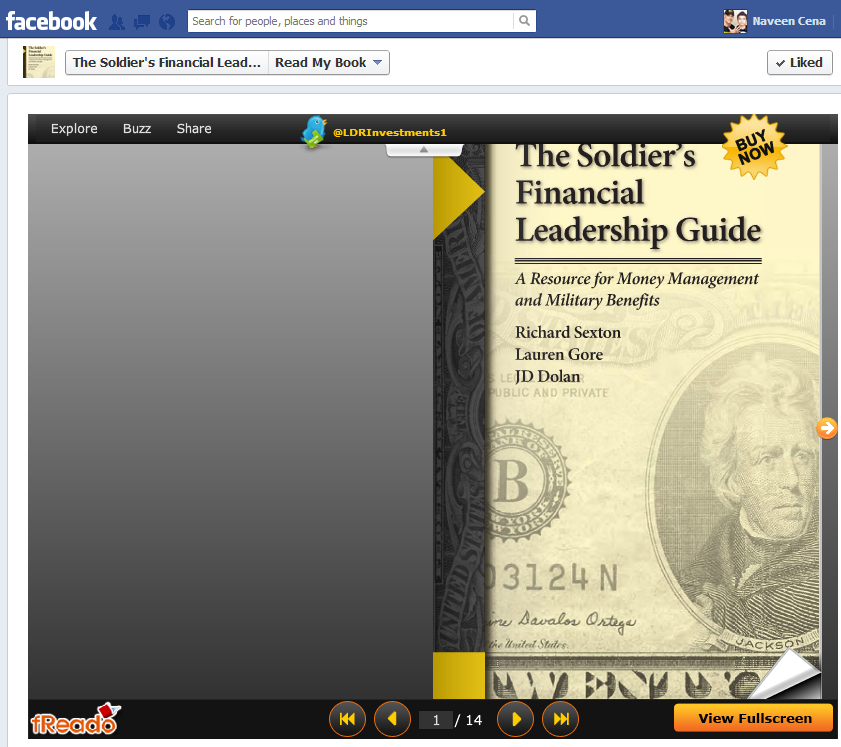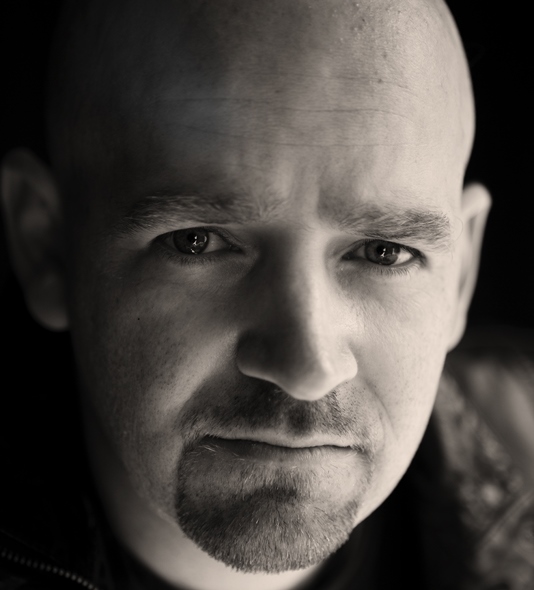“The Enemy of the Author is Not Piracy, But Obscurity” – Tim O’Reilly
This article offers 12 ideas to market and promote your book by giving away free stuff. Each of the ideas or ‘models’ is named after a person or company that I associate the model with. The idea is to stir your imagination and help you get creative with how you price and promote your book.
1. The Radio Head Model
(Pay whatever you want to pay)
Radiohead’s seventh album, In Rainbows, was released through the band’s own website on 10 October 2007 as a digital download for which customers could make whatever payment that they wanted, including nothing; the site only advised, “it’s up to you”. Following the band’s sudden announcement 10 days beforehand, Radiohead’s unusual strategy received much notice within the music industry and beyond. 1.2 million downloads were reportedly sold by the day of release.
The idea is simple. Stick in a suggested price but allow your reader to decide what they want to pay for your book. If they decide that they want to pay zero dollars for your book, that is also fine. Think of them as evangelists for your book.
2. The Grateful Dead Model
(Pay for souvenirs and enhanced experiences)
The Grateful Dead is one rock band that were masters of marketing and differentiation. In the 1980s, the Dead decided to go against accepted practice and allow fans to tape live performances. In an industry where bootleg records cost artists and record companies profits, such a decision was like shooting yourself in the foot.
Fans, however, had to follow an honor system. They could keep or trade the tapes with fellow fans, but they could not sell them for profit. With the advent of the Internet, a vast virtual community of tapers has emerged, with Deadheads reaching out electronically via hundreds of homespun Web sites to share the experience yet again.
So what’s the takeaway for authors from the Grateful Dead model? Don’t hold on to your content and ideas with too much ferocity. If your fans want to reproduce your content, be grateful! If they want to carry your excerpt on their sites, don’t worry. Your goal is to promote the expansion of your idea virus. And to capture a share of their minds. Then (if you’re a non-fiction author), you can charge for your in-person experience (seminars and workshops.) Or if you’re a fiction writer, you can charge for souvenirs related to your content such as a signed, physical copy of your book.
(Buy current book and get future, uncompleted book for free)
A few months ago, Timothy Ferris – author of The Four Hour Work Week was on an audio interview with the folks from Duct Tape Marketing. While finishing up the interview, Tim gave a special offer. The offer was this – If you bought 4 copies of his Four Hour Work Week book and sent in the Amazon receipts to Tim via email, later, in 2010, you’d get an advance, autographed copy of his new book Becoming Superhuman.
The key idea here is that you, as an author, want to begin promoting your future book as much in advance as possible. And what better way to do that than to reward fans who purchase your current book with a free copy of your yet to be completed future book. You get royalties on your current book. And you promote your future book as well! Like many other things in Tim’s life, it is possible to have the cake and eat it too.
4. The Robert Greene Model
(Bundle concise version of your book with another one of your books)
Robert Greene has written many books among which you will find – ‘The 48 Laws of Power’ and ‘The Art of Seduction.’ He also has concise shorter versions of both these books. Now, when you buy either of these books, you get the concise edition of the other book bundled with your purchase. You’re happy since you’re getting a free gift. But the concise edition is really an inducement to go out and buy the full version.
This idea can work for you if you have at least 2 books to your credit and the audience for both the books is the same. If it is two non-fiction books, you can create concise versions of both the books and include the concise version with each book purchased. Packaged well (like all good souvenirs), you can even charge higher for the bundle. If it is two fiction books, you can plan on including the first 3 chapters of your other book with every purchase of your first book and vice versa.
5. The Cory Doctorow Model
(Treat your book like an open-source software project)
Cory Doctorow is a well-known, science fiction writer, journalist and blogger (he runs the popular Boing Boing blog.) If you go to Cory’s website – you can get to read all of Cory’s books for free. Not only that, you, as a reader of Cory’s books, are encouraged to convert his books into other formats such as iPhone compatible formats, Kindle compatible formats, etc. and send those in to Cory. Cory will then put up that digital version of his book with a little thank you note to your name. You can even translate the books into different languages. Cory’s books come with a Creative Commons license which lets you share it, remix it, and share your remixes, provided that you do so on a noncommercial basis. Why does Cory do this? On this excellent post, he gives his rationale and says, “Giving away ebooks gives me artistic, moral and commercial satisfaction.” Cory believes that digital versions of books are enticements to buy the physical copies of his books. And Cory says that his book sales have consistently beaten the expectations of his publisher.
So what’s the big idea here? Treat your book like an open-source software project. Get your community of readers involved. Let them enjoy the creative process of remixing or adding to your offering. Then they become evangelists for your book. Also, by nature, people want to do the right thing. Most people do not want to take something for nothing. If you give them pleasure or value without restrictions or strings attached, they will give back in different ways. The most impressive aspect of Cory’s models is that his fans have asked for a way to donate to Cory and Cory has gone ahead and set up a mechanism for his fans to make voluntary contributions. While this model is most suited for science fiction books with a geeky audience, it can be tried in other genres also.
6. The Tony Eldridge Model
(Give away your book over time in serial format)Tony Eldridge is the author of the thriller book – ‘The Samson Effect’ and a well known book marketer. There are actually two ideas from Tony that are worth studying – serialization and offering the full book free online. Tony initially started out by releasing one chapter a week of his book. It had many people hooked and they waited eagerly for the next chapter to come out. More recently, Tony has put up his entire book to be read online for free.
Does this hurt Tony’s book sales? No! The people who read the full book online tend to become ambassadors for his book telling other people about the book. And the people who buy the book get a much better reading experience (you cannot lie back on a hammock and read from a computer screen for 4 hours at a stretch … can you?) Of course, if you have a publishing contract, your publisher may not be too happy with you putting up your entire book online for free reading. In that case, consider the Paulo Coelho model (see below.)
7. The Paulo Coelho Model
(Encourage digital piracy of your books)
Paulo Coelho has sold over 100 million copies of his books. Part of his online marketing activities is to help people find digitally pirated copies of his own books. He does this by maintaining an online page called Pirate Coelho which links to all of the places on the Internet where you can get pirated copies of Paul’s books (an online directory of pirated books!) Paulo also appeals to the altruistic part of the modern-day pirates’ hearts by suggesting that you donate a physical copy to a local library in case you read a pirated version for free online and like it. Paulo’s publishers claim no knowledge of Paulo’s creative book-marketing efforts. According to this article, “When reached by NEWSWEEK, a HarperCollins spokeswoman, Patricia Rose, said the publisher knew nothing about Coelho’s online activities.”
Results have been impressive for the Paulo Coelho model. According to this same article, “Bookstore sales in Russia, a market in which Coelho was having distribution problems and where he had sold only 1,000 books, rocketed to 10,000 in 2001. He has since sold 10 million copies of his books, his agent says. His fans have downloaded complete editions of his books, in languages ranging from Spanish to Swedish, more than 20 million times in the past seven years.”
For many people, the only thing better than free stuff is stolen free stuff. There’s a special thrill in going to peer-to-peer torrent sites and downloading free music or movies. You feel like you’re a modern day Robin Hood – stealing from the rich fat record companies. For example, even though my friend Chetan Dhruve’s book manifesto is available as a free download on ChangeThis.com, you will routinely see the book listed on P2P file sharing sites. The big takeaway for you? Think up a creative way to make your content look like forbidden fruit. Then you have a chance of getting the attention of your readers.
Podiobooks.com offers serialized audio books to listeners. If you’re an author, this is another way for you to monetize and popularize your content at the same time by giving away the audio version of your book for free. You make money if listeners make a donation to you (possible through the site.) Or it’s possible that your listeners will talk about your book to their friends who may go out and pick up your book.
This model can probably work well for non-fiction books since many non-fiction books contain portions which require you to have a visual reference. The downloading of an audio version of the book does not necessarily cannibalize sales of the text version of your book. The problem with this model for fiction books is that once your audience finishes listening to your book, there is very little incentive to make a purchase of your book. And even though your listener may be willing to make a donation, it’s possible that she forgets to make the donation because of other activities that crowd out her schedule. In my own case, I actually listened to an excellent science fiction book by Bill DeSmedt. I even went back to the site in order to make a donation to the author. But my donation did not go through because of some technical glitch on that day and I gave up after a few tries and after informing the author about the technical issues.
(Permission Marketing)
The idea of permission marketing can be extended to the newer tools of the Internet. For example, you can ask for permission to contact the prospect via Twitter i.e. require that they follow you on Twitter. In exchange for this you can give away a free ebook or special report. Or you can ask your reader to make a blog post in order to receive a copy of your ebook.
Seth also argues that authors should recognize that they are idea merchants and that books are simply souvenirs of the authors’ ideas. You can watch this video below:
Another important idea suggested by Seth is the notion of an idea virus. An idea virus is an idea that has the potential to spread very rapidly. Seth wrote an ebook on the idea which is touted as the “#1 eBook in history.” You can download the book here.
11. The Chris Anderson Model
(Digital version free for a limited time)
When Chris Anderson launched his book – ‘Free: The Future of a Radical Price’, he surprised everyone by giving away both audio and online reading versions of his book for free. There were no strings attached. No need for registering, signing-up for a mailing list or anything else. But it was a limited time offer. Not surprisingly, the book received a tremendous amount of coverage and interest and went on to become a New York Times bestseller.
There are three key takeaways here. The first is that Chris did not ask you to provide your email address or share the book with your Facebook friends or do anything else in order to receive a free copy of his book. You just went to his blog post and read it or downloaded the audio version. The next key idea is that it was a limited time offer meant to stimulate interest in the book. People make decisions when they have a deadline or when you create a sense of urgency. Chris did this admirably well. Finally, there was a real price associated with the product. I knew that if I needed to buy the physical copy of the book, I’d need to pay over $10. And so it was a no-brainer for most people to read the book online or to download the digital version. Now, how is it that the book went on to become a best seller inspite of giving it away for free? Simple, the people who read it for free, talked to their friends about the book. Some of these simply bought the book for convenience. Or it’s possible that the ones who downloaded the audio book went out and bought a physical copy for reference purposes.
12. The fReado.com Model
(Play games to win free books)
fReado.com is offering authors a new way to market their books online by giving away their books as free gifts to readers who play online games on the fReado.com site. The idea will work like this. A reader comes to the fReado.com site. The reader notices the option to win prizes such as Kindles, best-selling books, classic books and new books by playing online games. While playing these online games, the reader is continually exposed to book covers of participating authors inside the game playing experience. So authors get exposure both inside the game and in the prizes section where their books will be listed. Readers can exchange points that they win with any of the prizes listed in the prizes section. Click here to see a demo.




